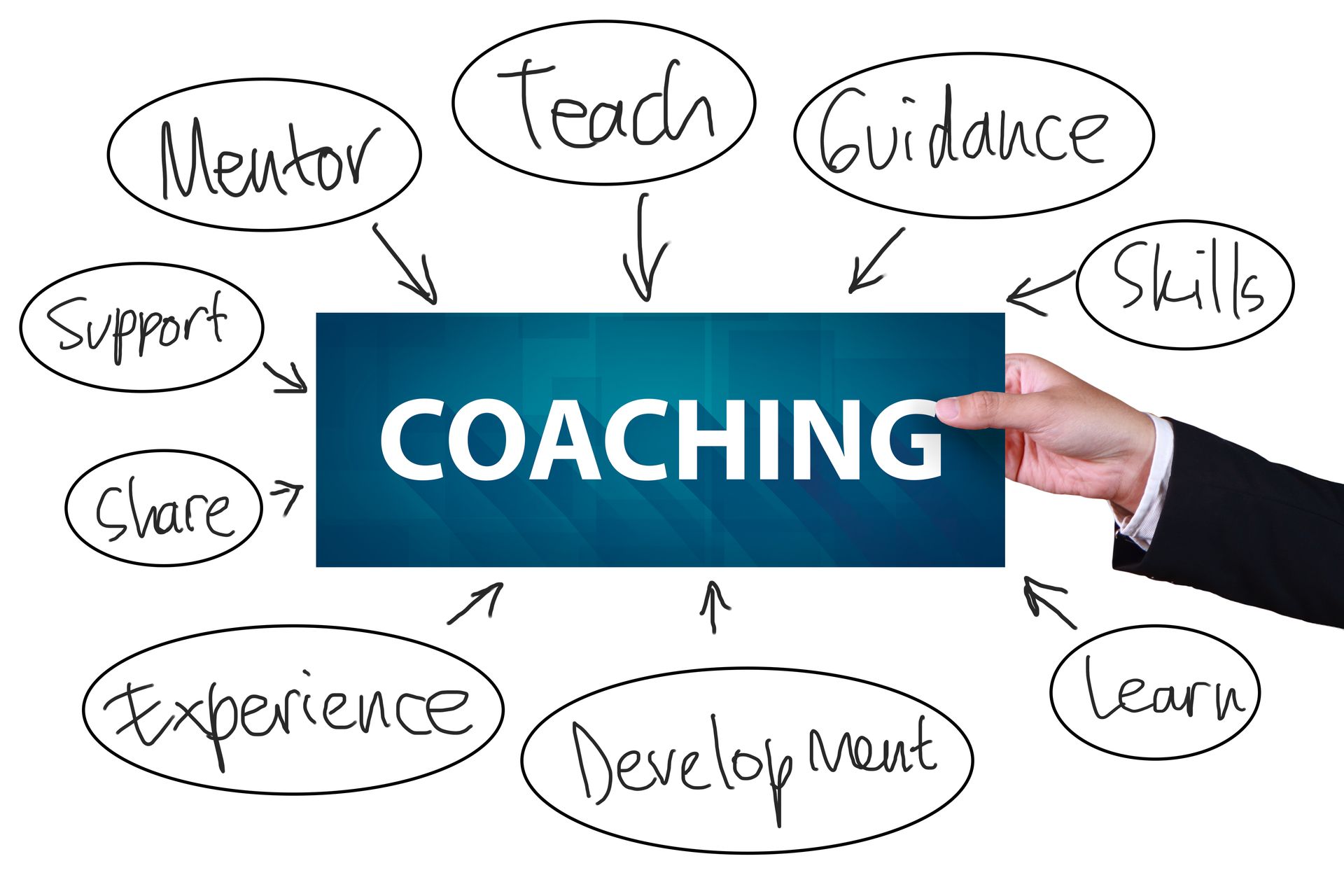SQUIPP supports you in your job search process
Our resources for candidates
Our job offers that might interest you
Our resources for businesses
Our advice to boost your company

Over the past few years, the pharmaceutical sector has undergone a profound transformation. Between the rapid growth of biotech companies, the widespread emergence of innovative therapies, the digitalization of clinical trials, and fierce competition to attract top talent, recruitment has never been so strategic or so complex. At the heart of this evolution, one tool has taken center stage: LinkedIn. Long used as a simple professional networking platform, LinkedIn has become the primary playground for pharmaceutical recruiters. Not only does it provide access to millions of qualified profiles, but it also enables closer connections, the building of a strong employer brand, a deeper understanding of candidate motivations, and most importantly the ability to engage in authentic conversations. In this article, I explain how LinkedIn is transforming pharmaceutical recruitment and why companies that master this tool now have a clear competitive advantage.

Attracting scarce talent in the pharmaceutical industry has become a strategic challenge for companies. Between the growing number of R&D projects, the rapid expansion of bioproduction, increasing regulatory complexity, and the emergence of new roles, qualified profiles are becoming harder and harder to find. Biostatisticians, quality assurance managers, validation engineers, compliance specialists, regulatory affairs experts, and pharmacovigilance professionals all share one thing in common: they are highly sought after, difficult to convince, and often already employed. Faced with this tight labor market, many companies believe they have only one option: outbidding competitors. However, significantly increasing salaries is neither sustainable nor equitable. It weakens internal compensation policies, creates pay disparities, fuels internal tension, and drives a salary inflation cycle that ultimately harms employer branding. The good news? There are powerful strategies to attract scarce talent without breaking your salary structure.

The pharmaceutical sector is often perceived as a highly technical world, dominated by laboratories, scientists in white coats, and strict regulations. Yet behind this very professional façade lies an even more complex reality: pharmaceutical recruitment a strategic field that deeply influences innovation, drug quality, and corporate competitiveness. This is exactly what Behind the Scenes of Pharmaceutical Recruitment: What You Need to Know reveals — a crucial topic for anyone looking to work in or better understand this industry. Recent developments in the sector Over the past decade, the pharmaceutical industry has undergone profound transformation. Biotechnologies, genomics, targeted therapies, and artificial intelligence have reshaped skill requirements. Companies are now looking for hybrid profiles: scientists who can use advanced digital tools, data experts capable of collaborating with biologists, and pharmacists who master European regulations. This evolution has created a constantly shifting employment landscape, with new roles emerging every year. Compliance and innovation challenges The pharmaceutical industry operates under continuous regulatory scrutiny: EMA, ANSM, FDA, and others. Every decision must comply with strict standards. Recruiters must therefore ensure that candidates are familiar with Good Manufacturing Practices (GMP), international guidelines, and quality processes. At the same time, innovation remains critical. Companies seek creative profiles capable of solving complex problems. The pharmaceutical recruitment process: how does it work? Pharmaceutical recruitment is far more than a simple interview. It is a rigorous and often lengthy process involving multiple layers of evaluation. Key Stages of Scientific Recruitment Internal needs analysis Everything begins with a precise assessment of internal needs. Companies do not simply open a position; they define the required scientific, technical, and behavioral skills. Levels of proficiency in quality standards, laboratory tools, or specific software are clearly specified. Job description development Job postings in the pharmaceutical sector are among the most detailed on the market. They often list a wide range of skills such as chromatography, validation, microbiology, regulatory writing, and more. Pre-screening and evaluation process The pre-screening phase follows. Recruiters thoroughly review professional experience, scientific publications, certifications, laboratory internships, and even non-technical skills. Collaboration between HR and scientific managers Unlike many other sectors, scientific managers play a central role in evaluation. They assess the scientific consistency of a candidate’s background, test technical knowledge, and evaluate laboratory reflexes. Final decisions are therefore collaborative: HR + scientific leadership. Key skills sought in pharmaceutical recruitment Essential technical skills Recruiters look for profiles capable of mastering: Good Manufacturing Practices (GMP) Equipment validation and qualification HPLC, GC, MS analyses Pharmaceutical formulation development protocols International regulatory frameworks Digital tools (LIMS, AI, data analytics) While these skills vary by role, one constant remains: scientific precision. Human and behavioral skills Soft skills are equally critical: Rigor Stress management Cross-functional collaboration Ability to document every action Strict adherence to procedures These competencies are evaluated at the same level as technical expertise. The role of specialized pharmaceutical recruitment firms Why companies use them The pharmaceutical sector requires highly specialized expertise. Recruitment firms focused on pharma have access to qualified candidate networks, regulatory knowledge, and consultants trained to understand the nuances of scientific roles. Advanced evaluation methods and tools These firms rely on: Technical assessments Case studies Regulatory competency verification Structured multi-criteria interviews Psychometric tools adapted to the sector Their mission is to secure hiring decisions in an industry where mistakes can be extremely costly. Most in-demand roles in the pharmaceutical industry Research & Development (R&D) Profiles in pharmaceutical formulation, analytical development, and preclinical research are highly sought after. Regulatory Affairs Experts in marketing authorization dossiers, variations, and compliance. Manufacturing & Quality assurance Quality technicians, QHSE managers, and production managers are essential. Pharmacovigilance With the digitalization of adverse event reporting, this function is growing rapidly. How to prepare for success in pharmaceutical recruitment Preparing a CV that meets industry standards Pharma recruiters expect structured CVs that clearly detail mastered techniques, projects, publications, and certifications. Preparing for tests and assessments Depending on the role, candidates may face: scientific tests, regulatory multiple-choice questionnaires, case studies, role-playing scenarios in quality-driven environments. Understanding recruiter expectations Recruiters aim to assess: technical mastery, reliability, ability to follow procedures, understanding of regulatory challenges. Trends and future developments in pharmaceutical recruitment Impact of AI and digital tools Companies increasingly rely on ATS platforms, CV analysis tools, and video interview solutions. Growing importance of compliance Regulatory requirements increase every year, driving demand for quality and compliance specialists. New ways of working Remote work is now common in pharmacovigilance, regulatory affairs, and data science roles. Mistakes to avoid in pharmaceutical recruitment Underestimating regulatory expertise Omitting technical details from the CV Appearing too rigid or too vague Underestimating behavioral and soft-skill assessments

The pharmaceutical sector has been undergoing profound transformation over the past few years. Between the explosion of biotech companies, the rise of innovative therapies, the digitalization of clinical trials, and fierce competition for top talent, recruitment has never been so strategic — nor so complex. Yet at the heart of this evolution, one tool has taken center stage: LinkedIn . Long seen as a simple professional network, LinkedIn has become the primary playing field for pharmaceutical recruiters. Not only does it provide access to millions of qualified profiles, but it also allows recruiters to build proximity, develop a strong employer brand, understand candidate motivations, and most importantly engage in authentic conversations. In this article, I explain how LinkedIn is transforming pharmaceutical recruitment and why companies that master this tool now have a clear competitive advantage.

The pharmaceutical industry is transforming, yet its methods for selecting HR partners often remain unchanged. While technology and data are redefining how companies develop, validate, and commercialize their products, the selection of recruitment agencies still relies far too often on informal practices: verbal references, historical relationships, or marketing promises. A recent analysis highlights a structural gap in the market: the absence of standardized mechanisms to evaluate the real performance of agencies. This weakness slows down recruitment processes, complicates comparisons between service providers, and undermines the quality of decision-making. To bridge this gap, four levers appear essential: structured performance verification, standardization of evaluation criteria, integration of tracking processes, and peer validation. Applied to pharmaceutical recruitment, these levers can transform how laboratories and biotechs choose their partners. Verification: a must in a sector where proof is the norm In the pharmaceutical industry, nothing is decided without validation. Clinical trials, quality audits, regulatory compliance everything relies on verification and traceability. Yet when it comes to recruiting the talent who will lead these critical projects, companies still frequently rely on informal references. An HR director admits he “trusts a certain agency because he has worked with them for ten years.” But such loyalty does not guarantee current performance. Practices, teams, and methods evolve: trust must be reinforced by updated, measurable evidence. Building a “Verification Infrastructure” Implementing a verification infrastructure means going beyond anecdotal testimonials: Collecting performance data validated by clients (success rates, average time-to-hire, satisfaction). Standardizing case studies to ensure comparability between agencies. Replacing informal telephone references with structured and verified feedback. Such a verification system would enable pharmaceutical companies and biotechs to select their partners based on tangible evidence rather than reputation or communication. Standardizing evaluation: establishing common benchmarks Today, each company evaluates its agencies using its own criteria—sometimes even according to the personal preferences of individual managers. The result: no common basis to objectively compare provider performance. Why standardization is essential Standardizing evaluation criteria allows companies to: ensure fair comparisons, identify each agency’s true strengths, and reduce the selection time, which is often excessive. According to available studies, choosing a recruitment agency currently takes nearly 30 days on average—a delay that could be cut in half if data were structured and uniform. Towards a common framework In the pharmaceutical sector, such standardization could rely on: the quality of submitted profiles (alignment between skills and regulatory requirements), response speed, stability of placed candidates after 6 or 12 months, process compliance (verifications, confidentiality, adherence to ethical rules). A shared framework would help HR teams make informed decisions and recognize agencies that consistently perform well over time. Integrating processes: from fragmented tracking to full visibility Most pharmaceutical HR departments use a patchwork of tools: internal spreadsheets, ATS systems, emails, supplier portals, and more. The result: dispersed data, incomplete tracking, and learning that is difficult to capture. The need for “workflow integration” The idea is simple: unify the platforms and processes used to track HR partners. An integrated system would allow companies to: monitor project progress in real time, compare performance by agency, job type, or region, centralize feedback from candidates and managers, and automatically generate consolidated reports. Benefits for the pharmaceutical sector In an environment where time-to-hire directly impacts the innovation chain (particularly clinical trials or product launch projects), workflow integration could significantly reduce delays. It would also provide greater visibility to global teams in large pharmaceutical companies, who often struggle to oversee local performance. Such a system is not just a digital tool: it represents a governance approach in which all stakeholders (HR, hiring managers, agencies) share the same data and speak the same language. Peer validation: collective intelligence serving better decisions In a saturated market, it is increasingly difficult for a pharmaceutical company to distinguish marketing claims from true added value. This is where a peer validation system becomes invaluable: a structured mechanism enabling HR professionals to share and verify recommendations among peers. From rumor to collective data Today, recommendations circulate mainly informally: an HR director recommends an agency to a colleague, without consolidated data supporting the advice. A peer validation system would formalize and aggregate this feedback: Which agencies achieve the best results on regulatory profiles? Which are the most effective for production roles? Which biotechs recommend which partners, and why? This shared HR knowledge creates a powerful and verifiable collective intelligence—far more reliable than simple word-of-mouth. Specific value for biotechs and CDMOs Smaller organizations—biotechs or CDMOs—often lack: large internal HR networks, experience with multiple agencies, resources to conduct trial-and-error cycles. A peer validation system gives them direct access to the true market reputation of agencies. Towards a proof-based pharmaceutical recruitment ecosystem Combining the four levers—verification, standardization, integration, and peer validation—paves the way for a more mature and transparent HR ecosystem. In this environment: Agencies would be judged not on their narrative but on their measured impact. HR teams would no longer spend weeks comparing PowerPoint presentations but would analyze reliable performance data. Candidates would benefit from more coherent, faster, and more ethical processes. The concrete benefits of such a model Time savings: shorter agency selection cycles, Higher recruitment quality: alignment between real performance and business needs, Strengthened trust: thanks to transparency and cross-checking, Cost optimization: selecting partners who truly deliver. This model would enable pharmaceutical companies to professionalize their relationships with agencies and better manage their Talent Acquisition strategy. A strong parallel with pharmaceutical culture Evidence-based recruitment is not foreign to the pharmaceutical sector. It is, in fact, the natural extension of its scientific philosophy. Laboratories base their decisions on clinical data, reproducibility, and peer review. Recruitment must follow the same principle: observe, measure, prove. Implementing these structures means applying to recruitment the same rigor used to ensure the safety, quality, and efficacy of pharmaceutical products.

Trust as a strategic imperative Pharmaceutical recruitment is far more than an HR operation; it is a strategic lever for laboratories and healthcare companies. In a sector where technical expertise, strict regulatory requirements, and the scarcity of talent are critical constraints, a recruitment agency’s ability to build trust is crucial. Pharmaceutical companies are looking not only for qualified candidates but also for reliable partners who understand their specific needs, secure the hiring process, and add measurable value to their teams. Trust is not built solely on reputation. It relies on industry knowledge , transparency in methods , and the ability to identify candidates who align with company culture . Specialized agencies naturally have an advantage over generalist firms in this regard.

Pharmaceutical recruitment is now at the core of strategic priorities for healthcare companies. Between technological innovation, regulatory pressure, and a shortage of qualified talent, pharmaceutical companies must redouble their efforts to attract, assess, and retain rare profiles. In a context where specialized candidates are becoming increasingly scarce, the ability of a recruitment firm or a company to differentiate itself is becoming a critical success factor. The evolution of the pharmaceutical industry and its need for specialized talent Clinical research, biotechnology, and pharmacovigilance are all fields that require highly specialized technical skills. Digital transformation and personalized medicine are reshaping recruitment needs, creating a growing demand for hybrid profiles combining science, data, and business expertise. Why pharmaceutical recruitment has become a global strategic challenge The global healthcare market heavily relies on the ability to recruit experts capable of innovating quickly while complying with strict regulations. International competition for these talents makes pharmaceutical recruitment a major performance driver.

Recruitment in the pharmaceutical industry has become a major strategic challenge. companies are looking to attract increasingly specialized profiles: regulatory affairs experts, clinical trial specialists, biostatisticians, quality engineers, and even health-focused data scientists. these rare talents, highly sought after, know they have options. Recruiters, meanwhile, face a dual challenge: filling critical positions quickly while maintaining the rigor, compliance, and ethics required in such a sensitive industry. between the need for security and the pressure to innovate, expectations are often misaligned. This is why the quality of the first exchange between candidate and recruiter is crucial. it is the moment where trust can be built, visions aligned, and the foundation laid for a long-term collaboration. but how can both parties succeed in doing so? This article explores in depth the levers that allow pharmaceutical candidates and recruiters to better understand each other from the very first interaction.

The pharmaceutical sector is undergoing an unprecedented transformation. The rise of biotechnology, the emergence of personalized medicine, and the widespread use of artificial intelligence are reshaping research, production, and patient care. Yet another revolution, more discreet but equally decisive, is taking place: the digitalization of HR processes , particularly in recruitment. In an environment where talent is scarce, where competition between laboratories and biotech start-ups is fierce, and where new generations of candidates demand speed, transparency, and flexibility, traditional recruitment methods are no longer enough. Digital technology has now become a strategic lever to attract, select, and retain top talent . But what does this digitalization really mean? What benefits does it bring to the pharmaceutical sector? And what precautions should be taken to ensure it remains an effective tool without dehumanizing recruitment?

In the pharmaceutical industry, recruitment has become a balancing act. On one side, companies are looking to attract highly specialized profiles: regulatory experts, biostatisticians, quality managers, data scientists specialized in health. On the other side, candidates often in high demand are no longer willing to accept just any opportunity. They pay close attention to company culture, work-life balance, and the meaning behind their future role. Yet, there is still a gap between what candidates expect and what recruiters require. To build lasting relationships, it is essential to understand both perspectives and identify points of convergence. This article explores what candidates truly want, what recruiters are seeking, and how to bring these two visions closer together.






